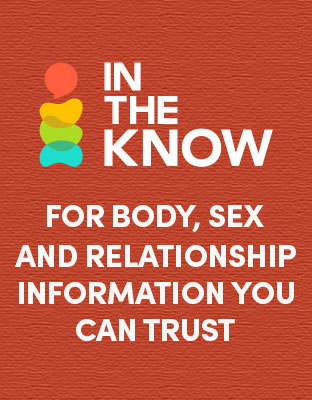Maximising Natural Fertility
Today people often leave plans for pregnancy until later in their adult lives. This is different to previous generations. Women are naturally more fertile in their 20s than their 30s but women are more often having children when they are aged 30-34 years old. Media reports of female celebritieswho get pregnant in their 40s or later can lead people to think that getting pregnant later in life is easy. In real life it can be difficult.
What happens to fertility as we get older?
Both men and women can have problems with fertility as they get older. Women are born with all of their eggs in their ovaries. A woman's eggs are released throughout her adult life until menopause. The eggs age as a woman does and eventually they run out. Women usually find it harder to get pregnant after the age of 35 years. This is because they havefewer eggs and the eggs are of lower quality. Women who are older also have higher rates of pregnancy complications such as:
- miscarriage
- gestational diabetes
- stillbirth
- genetic abnormalities - including Down Syndrome
The quality of a man's sperm may decrease as he gets older. There are also higher rates of miscarriage in pregnancies where the man is over 45 years old. It can take longer for a woman to get pregnant if her partner is over 40 years old.
Women are most fertile below the age of 35 years of age. If you are trying for a baby you are most likely to be successful when you are younger. Some women choose to freeze their eggs if they do not have a partner. This can be expensive and is not a guarantee of a later successful pregnancy.
When is the best time to have sex to improve my chances of becoming pregnant?
To increase their chances of becoming pregnant it is recommended that a couple have sex every 2-3 days during the fertile period to increase the chance of sperm meeting with the egg. A woman is most fertile at the time of ovulation. Sperm can live for up to 5 days in the fallopian tubes so having sex before ovulation increases the chance of the egg being fertilised as it only survives for 24 hours after being released. Most women will ovulate about 14 days before their next period.
It can be helpful to use a calendar or smartphone app to track the menstrual cycle. This can help to work out when a woman is most fertile. There are simple ovulation calendars available online. Other changes in the body can help a woman know when she is most fertile. These include a slight rise in body temperature and changes to vaginal discharge (cervical mucus is runnier when a woman is fertile). Ovulation kits can also be used to help a woman know when she is most fertile. Ovulation kits can be bought online or from a pharmacy. They use either urine or saliva to detect hormone levels. This shows when ovulation is likely to happen. Ovulation kits can be expensive.
What else can I do to improve my chances of becoming pregnant?
Managing your weight
Being either overweight or underweight can affect fertility. Women who are either overweight or underweight may not ovulate regularly. Women who are overweight have higher risks of miscarriage and pregnancy complications, such as high blood pressure and diabetes of pregnancy. To increase chances of getting pregnant, a woman can:
- aim for a healthy weight - speak with your doctor or nurse if you don't know the healthy weight range for your height
- eat a healthy, balanced diet
- take folate and iodine supplements as directed by your doctor
- do regular, moderate exercise
To increase chances of pregnancy, a man can:
- aim for a healthy weight – speak with your doctor or nurse if you don't know the healthy weight range for your height
- eat a healthy, balanced diet
- do regular, moderate exercise
Smoking
Smoking tobacco (including passive smoking) can decrease both female and male fertility. Smoking cannabis can also have an impact on sperm production. Men who smoke have:
- higher rates of erectile dysfunction
- a lower sperm count
- lower sperm quality
For women, smoking can:
- affect the transportation of the egg to the uterus
- interrupt hormones
- affect the blood vessels in the placenta which can effect baby's growth
- increase chances of miscarriage or stillbirth
- increase chances of childhood asthma
- To increase their chances of getting pregnant, men and women should not smoke.
Alcohol and drug use
Australian guidelines recommend that women should not drink alcohol when trying to get pregnant. Alcohol can reduce fertility for both men and women. It can:
- increase the time it takes to get pregnant
- reduce the quality of a man's sperm
- reduce the quality of a woman's eggs
Cocaine, heroin, cannabis and ecstasy, can also make it harder to get pregnant. Not taking drugs will increase your chances of getting pregnant.
When do I need to get help?
Most healthy couples will become pregnant within one year of trying. It can be helpful to visit a GP or Family Planning NSW clinic to talk about your options if you are:
- under 35 years old and have not become pregnant after one year of trying
- over 35 years old and have not become pregnant after six months of trying
If you think you may have fertility issues, it is important to talk to your doctor as soon as possible.
For more information
Family Planning NSW Talkline - www.fpnsw.org.au/talkline or 1300 658 886
National Relay Service (for deaf people) - 13 36 77
TIS National's immediate interpreting service - 131 450
Visit your nearest Family Planning NSW clinic - www.fpnsw.org.au/clinics
Family Planning NSW Fact Sheets - Pre-pregnancy planning and Health Pregnancy and Infertility
Victorian Assisted Reproductive Treatment Authority - www.varta.org.au
Andrology Australia - www.andrologyaustralia.org
Fertility Coalition - www.yourfertility.org.au




